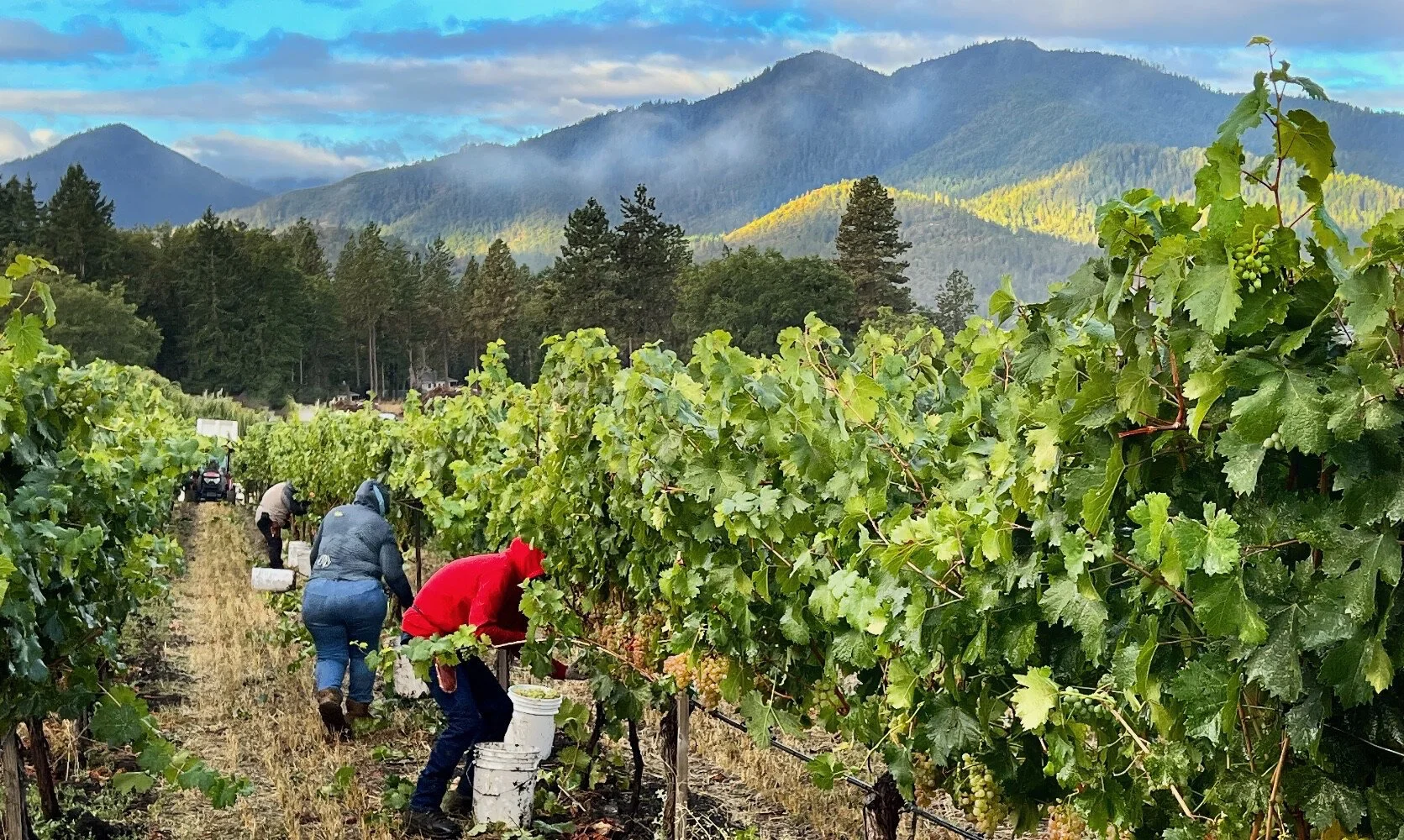Troon Vineyard is a singularly special place for a number of reasons. Besides making gorgeous wines (read: tons of concentration, depth, length… they’re particular favourites of New York Times wine writer, Eric Asimov), Troon is only the second winery in the world to be ROC Certified Regenerative in addition to being CCOF Certified Organic and Demeter Certified Biodynamic. It’s located in the Siskiyou Mountains, overlooking the Applegate Valley in Southern Oregon – just above the border to California. In addition to vines, the Troon farm is also home to apple trees for cider, vegetable gardens, honeybees, sheep, chickens, dogs, and the small-but-mighty, young, dynamic crew that keeps all these things going.
“Aside from the excellent Applegate wines I’ve had from Willamette producers, the wines of one producer, Troon Vineyard, made such an impression on me over the last few years that I drove seven hours from the Mendocino Coast in July to pay a visit to Applegate Valley.”
Troon has been a huge influence in our own conversations around Regenerative winegrowing (see also, Lady of the Sunshine and Âmevive in California). In so few words, Regenerative work stipulates organic and biodynamic farming first (to attain ROC certification, the winery must be certified organic and biodynamic first). Once those practices are well established, Regenerative farmers seek to farm the soil rather than the plants that grow above: the thought here is that the soil is akin to the human “gut biome,” which affects the health of the entire being that the gut supports. Another very important and relevant factor is to aid in carbon-sequestration, making the environment carbon-negative as well as self-sustaining. Practices like growing specific cover-crops, utilizing grazing animals and “no-till” (not tilling any of the ground beneath the vines or crops) all contribute to a regenerative environment.
The regenerative work at Troon is led by General Manager, Craig Camp; Winemaker, Nate Wall and viticulturist, Jason Cole. Experimentation here is key, understanding that this is still a relatively new project. They’re just as ready to discuss the challenges as they are their successes – probably most notably has been determining which varieties grow best in this high-altitude and arid climate. After careful observation, the team determined that grape varieties typically found in the Southern Rhône, for example, are much better suited here than the typical Pinot Noir, Chardonnay or Pinot Gris that one might have come to expect from Oregon. And so, some of Troon’s most beautiful wines are those made from Vermentino (exceptionally notable, actually, in white and amber iterations), Marsanne, Syrah and Grenache. The last of the Zinfandel was ripped up a couple of years ago in favour of more Vermentino, which is one of our favourites at Troon.
“We “farm like the world depends on it,” which is the slogan of the Regenerative Organic Alliance and reflects our vision for our farm, for our wines and for our planet.”
Winemaking is similarly carefully thought out. Grapes are grown and harvested with the intent to make a certain type of wine – rosé, amber (skin contact/“orange”), red, white… Decisions that work in harmony with nature, rather than trying to manipulate what nature gives in each season, that make a lasting impact on the quality of the resulting wine. Grapes are hand-picked and field-sorted by the crew that tended to them all season long. Fermentations are always spontaneous and ambient. No new oak or additives are used, save for a tiny amount of SO2 at bottling. Amber wines (skin contact/“orange”) are now being raised in clay amphora; other vessels include cement and old French oak. Ultimately, Craig and his team want to express vineyard and site over all else. And with such a gorgeous place to call home, who could argue with that.
